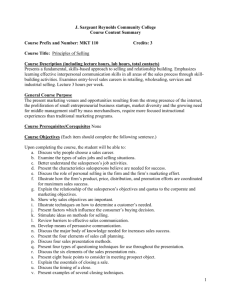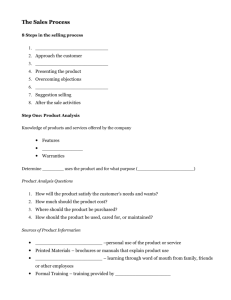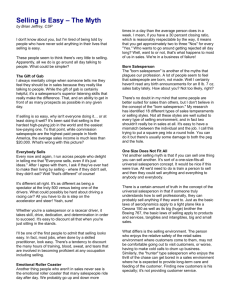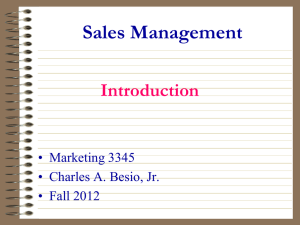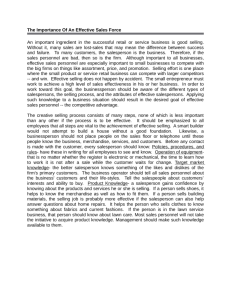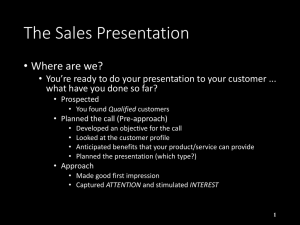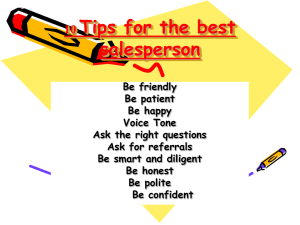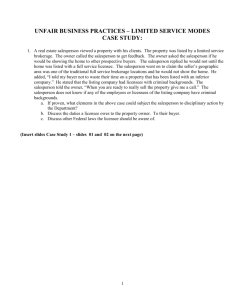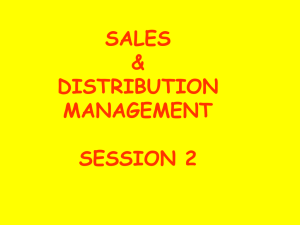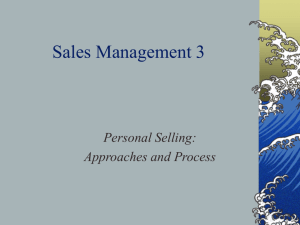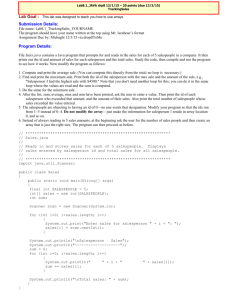Sales Training Fundamentals Checklist
advertisement
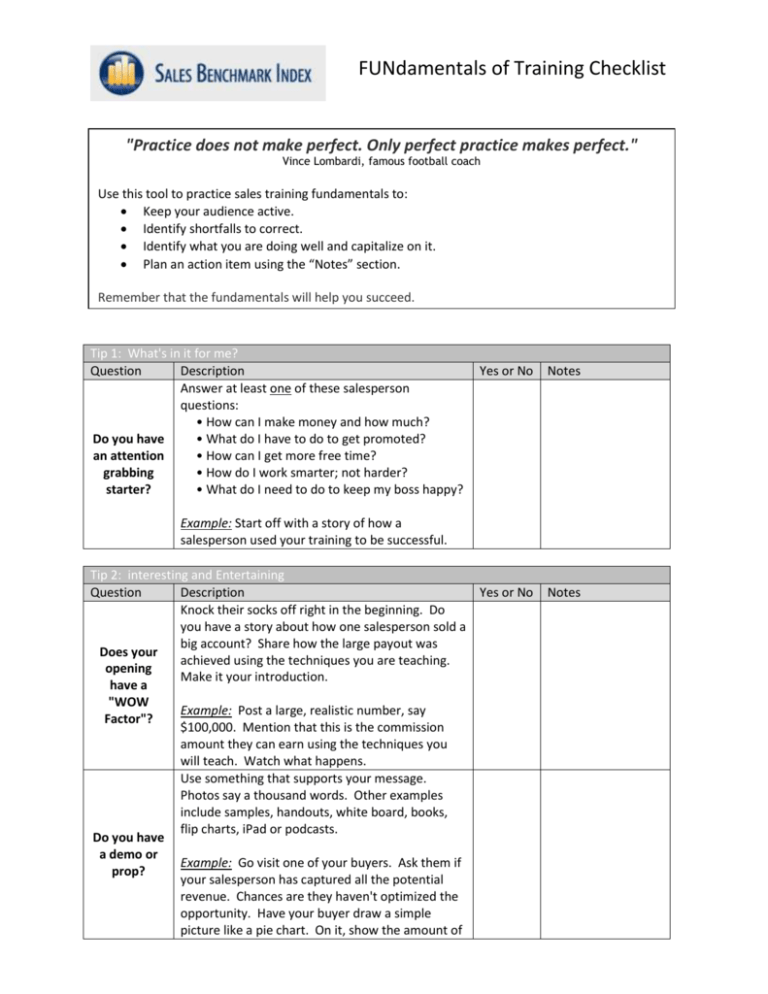
FUNdamentals of Training Checklist "Practice does not make perfect. Only perfect practice makes perfect." Vince Lombardi, famous football coach Use this tool to practice sales training fundamentals to: Keep your audience active. Identify shortfalls to correct. Identify what you are doing well and capitalize on it. Plan an action item using the “Notes” section. Remember that the fundamentals will help you succeed. Tip 1: What's in it for me? Question Description Answer at least one of these salesperson questions: • How can I make money and how much? Do you have • What do I have to do to get promoted? an attention • How can I get more free time? grabbing • How do I work smarter; not harder? starter? • What do I need to do to keep my boss happy? Yes or No Notes Example: Start off with a story of how a salesperson used your training to be successful. Tip 2: interesting and Entertaining Question Description Yes or No Knock their socks off right in the beginning. Do you have a story about how one salesperson sold a big account? Share how the large payout was Does your achieved using the techniques you are teaching. opening Make it your introduction. have a "WOW Example: Post a large, realistic number, say Factor"? $100,000. Mention that this is the commission amount they can earn using the techniques you will teach. Watch what happens. Use something that supports your message. Photos say a thousand words. Other examples include samples, handouts, white board, books, flip charts, iPad or podcasts. Do you have a demo or Example: Go visit one of your buyers. Ask them if prop? your salesperson has captured all the potential revenue. Chances are they haven't optimized the opportunity. Have your buyer draw a simple picture like a pie chart. On it, show the amount of Notes FUNdamentals of Training Checklist Can you share a recent experience that is relevant to your audience? your current sales and the up-sell potential. Talk about the ways to secure the additional revenue. You can use a recent experience during a ridealong with a salesperson. A story about a customer also has impact. Example: You can describe a situation where a salesperson listened to the buyer and closed the deal. Don't tell your audience how you can help them. Show them by using your imagination to bring your point to life. There are many ways to demonstrate this. Can you show me how to do it? Example: The next time you are visiting a buyer ask them why they became your customer. Get their permission to record their response. Show it! Then look at the reactions from your audience. You are a great presenter, the average adult's attention span is only good for 20 minutes. Plan some form of entertainment or activity. This technique will allow you them to recharge so they Can you hold can pay attention. my attention? Example: Conduct the training in a setting that is unique to your audience. Introduce a few videos, podcasts or audio recording to retain interest. How about bringing in an animal to help demonstrate a key point? Don't stand in one place. Move around. You can captivate your audience with even the simplest Why are you movements. standing still? Example: Put your laptop in the front, mobile device in one corner and collateral in the back of the room. Tip 3: Interactive Question Description Your sales audience needs to learn how to handle various situations. They need to respond to stressful situations like buyer value questions or product benefits. By assuming roles and acting out Can you situations, your salespeople gain confidence. Roleact? playing sessions help prepare your audience for many situations that they will encounter. Example: Have one of your salespeople assume the Yes or No Notes FUNdamentals of Training Checklist role of the buyer. Have another one act as the salesperson. During the exercises, switch around the titles and industries. It is very different selling to healthcare than automotive. Teaching them the difference will facilitate their development. Record the entire interact on an iPad and playback for review. Have you class discuss what went right and wrong. Games will keep your audience actively involved. There are many on-line and off-line programs that enable you to quiz your audience. You can create a friendly competitive experience by having your salespeople compete against each other. You should contemplate offering prizes for top performers. Do you have fun playing games? Example: You can use games show formats like "Family Feud" to create a sales training game. List facts and other information about the service or product line. Ask each team to identify the top five selections for each question. This technique will increase a salesperson's knowledge of the product or service. You should offer prizes for the top performers. Another technique is automatically sending a question to each salesperson at regular intervals. Send it to their computer or hand-held device. Then tally the points and reward for the highest points.
